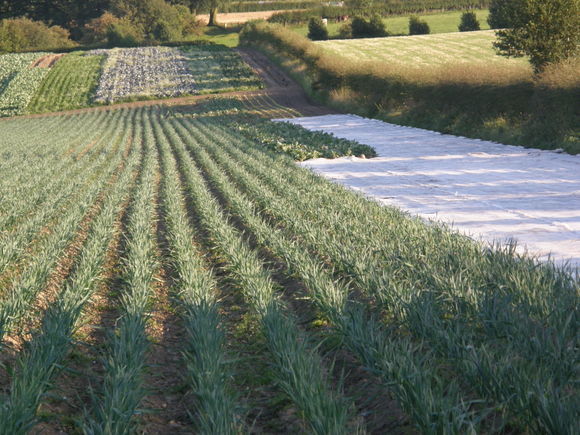While using crop rotations might sound old fashioned, it is a much more effective and sophisticated system than relying on chemicals. Using chemicals to fertilise the soil often only provides crops with the three basic elements (nitrogen, phosphorous and pottassium) that they need to grow, rather than providing them with all the nutrients they need.
As well as ensuring soil nutrients don’t get depleted, crop rotations also prevent the build up of pests and diseases, which help organic farmers to avoid the use of pesticides. When a farmer plants the same crop in one field year after year (known as a mono-culture), the pests and diseases that attack the crop establish and increase in numbers year-on-year – non-organic farmers then rely on pesticides to deal with this. In contrast organic farmers avoid the problem by alternating crops that are vulnerable to different pests and diseases each year, preventing any from getting established in the same location.
Crop rotations therefore have many important functions:
- They help to control pests and diseases
- They help to maintain soil fertility
- They help to maintain soil organic matter levels and soil structure
- They ensure that enough nutrients are available to different crops each year
- The overall result of these techniques is that organic farming reduces environmental pollution and the release of greenhouse gases from food production. Together with the focus on maintaining soil health this ensures that organic farming is better for the environment than more intensive systems.
